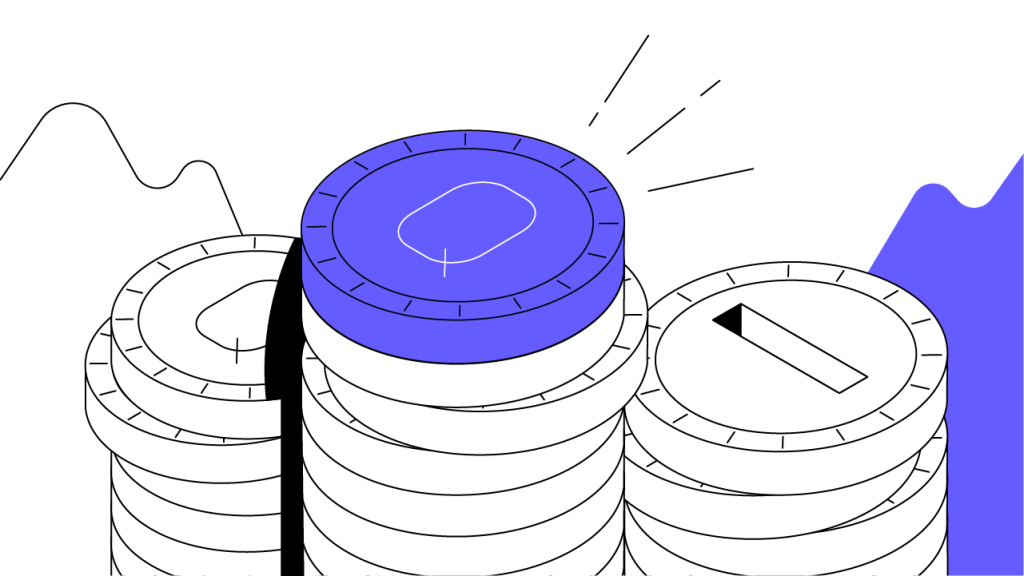Contents
Quoine Liquid Token (QASH): Crypto Liquidity for Finance
Quoine (QASH) — the first crypto exchange to be fully licensed in Japan — has set its sights on resolving digital assets’ ongoing liquidity problems.
Updated November 24, 2021 • 5 min read

Summary
Quoine was founded in 2014 as an early provider of fiat-to-crypto trading through a service called Quionex. In 2017, Quoine expanded to provide crypto-to-crypto trading through a service called Qryptos. Then, in 2018, Quoine launched a web application called Liquid — a cryptocurrency exchange and liquidity platform — which combines Quionex and Qryptos. As the name implies, Liquid is designed to bolster the liquidity of digital assets by pooling together the resources of different exchanges. It does this through its World Book — a repository of exchanges all over the world that have partnered with Liquid.
Contents
What Is Liquidity?
Liquidity refers to the ability for a buyer or seller of an asset to find a counterparty to their trade without causing a noticeable shift in the asset’s price. There are a handful of factors that affect liquidity.
Cash is very liquid and can be spent immediately almost anywhere. A famous painting, on the other hand, may lack liquidity despite being valuable. It may take days or even weeks — plus the involvement of a specialist service such as an auction house — in order to find an interested buyer and eventually sell it. In order for an asset to be liquid, there must be an open and robust market for it. For cryptocurrencies and other digital assets, this usually happens when they can be bought and sold on various cryptocurrency exchanges.
A liquid asset must also have a high level of trading volume, which indicates ample supply and demand from buyers and sellers. Liquid assets are more stable than their illiquid counterparts, which are vulnerable to slippage. Slippage is a loss of value that happens when a buy or sell order noticeably moves the price on an exchange as the result of a wide spread between the buyer’s desired price and the seller’s desired price. Because liquid assets generally have a number of buyers and sellers at any specific price, the spread is narrower than for illiquid assets and they are less likely to suffer from any significant slippage.
For example, if you’re buying $1,000 USD worth of bitcoin or ether on a popular exchange, you’ll be able to buy that amount at the price you set in your order. However, you may experience slippage when trying to sell a substantial amount of a less popular altcoin at the current sell price. If the price buyers are willing to pay for a coin goes down as you’re selling, then you’ve been affected by slippage.
Liquidity is also affected by the global accessibility of an asset. With a global exchange, asset prices are much more stable and less susceptible to the premiums and fees charged by local exchanges.
Quoine’s Liquid Exchange
Quoine’s Liquid Exchange is the first cryptocurrency exchange to be fully licensed by the Japan Financial Services Agency. It features robust security measures such as ID verification, 100% cold wallet storage, mandatory two-factor authentication, and implements a range of anti-money laundering precautions. It leverages its World Book feature to provide liquidity to markets all around the world. Further, Liquid released the Liquid Pro mobile app in 2019, helping its customers use the Liquid suite of trading tools on the go.
QASH Token
The Quoine Liquid Exchange is powered by its native utility token, QASH, which is an ERC-20 token built on the Ethereum blockchain. Liquid users can receive up to a 50% discount on Liquid exchange fees by paying these costs in QASH.
There is a total supply of one billion QASH tokens. Liquid held an Initial Coin Offering (ICO) for the QASH token in November of 2017, generating approximately $105 million USD. During the ICO, 350 million QASH tokens (35% of the total supply) were sold, with the remaining 650 million tokens allocated as follows: 300 million (30%) to the community and ecosystem, 200 million (20%) to the team and shareholders, and 150 million (15%) to strategic partners and institutions.
World Book: Improving Liquidity Issues and Helping Underserved Markets
The World Book is an innovation devised by the Liquid exchange that pools liquidity with other partner exchanges. It began as the Internal World Book, which functions as a multi-market order (MMO) book aggregating liquidity from multiple parallel order books on the Liquid exchange. When a user submits an order to buy Bitcoin (BTC) in their local fiat currency — e.g., U.S. dollars (USD) — the trade will be fulfilled in that currency. But when another party sees that order in another fiat currency — e.g., Japanese yen (JPY) — they will see the original USD order fluctuate in price according to changes in the foreign exchange rate between USD and JPY. The Internal World Book aggregates all this data, and allows for cryptocurrency orders in various fiat currencies to match with one another — resulting in increased liquidity.
The External World Book takes this same concept and connects different exchanges across the globe. This World Book represents a global network of liquidity providers, which together can provide better price matching than they would as individual providers. For example, a trader would only need to perform one trade on Liquid to transition between BTC and JPY — even if that user didn’t have direct access to an exchange that provided that service, with the External World book connecting all the necessary exchanges for the BTC/JPY trade to go through. In this case, Liquid might pair one party’s BTC/USD order to an ETH/JPY order on another exchange by performing intermediary BTC/ETH and USD/JPY transactions. By offering a wide variety of trading pairs and carrying out intermediary liquidity-driving transactions under the hood, users get a seamless trading experience.
Some markets might not be large enough to justify having their own fiat currency on-ramps and off-ramps built into every cryptocurrency exchange, but with the External World Book, access to global liquidity is made available to underserved markets.
The External World Book is still largely in development, although many exchanges have committed to joining the network. It is a promising solution to the liquidity problems that the cryptocurrency space has faced. Currently, liquidity is only available for certain digital assets and on certain exchanges — a reality that Liquid hopes to address by connecting more buyers and sellers across the globe.
Liquid Exchange’s Partnerships and Future Plans
One notable characteristic of Quoine’s Liquid Exchange is that it’s the first crypto exchange to be fully licensed in Japan, the home of its largest customer base. Liquid also has partnerships with other exchanges around the world through its World Book feature. These partnerships aim to increase liquidity while prioritizing security, regulations, and legal compliance.
In 2019, Liquid announced its planned expansion into the U.S. market with the creation of an entity called Liquid Financial USA Inc (Liquid USA). This move represents an important milestone for the expansion of Liquid’s services to key global markets. Liquid hopes to clear the regulatory hurdles associated with running a U.S.-based cryptocurrency exchange as soon as possible, although this has not yet occurred as of November 2020.
In June 2020, Liquid also added support for DASH’s InstantSend feature. And in September 2020, Liquid announced that they would be joining the DASH FastPass network, which allows users to make near-instantaneous deposits and withdrawals on the Liquid Exchange — providing DASH users with the ability to quickly leverage better market opportunities.
Liquid has further plans to launch its own native blockchain in the future and leave the Ethereum platform behind. Although details are currently lacking for this ambitious project — currently known as the Liquid Distributed Ledger (LDL) — many are looking forward to this development.
Cryptopedia does not guarantee the reliability of the Site content and shall not be held liable for any errors, omissions, or inaccuracies. The opinions and views expressed in any Cryptopedia article are solely those of the author(s) and do not reflect the opinions of Gemini or its management. The information provided on the Site is for informational purposes only, and it does not constitute an endorsement of any of the products and services discussed or investment, financial, or trading advice. A qualified professional should be consulted prior to making financial decisions. Please visit our Cryptopedia Site Policy to learn more.

Is this article helpful?


